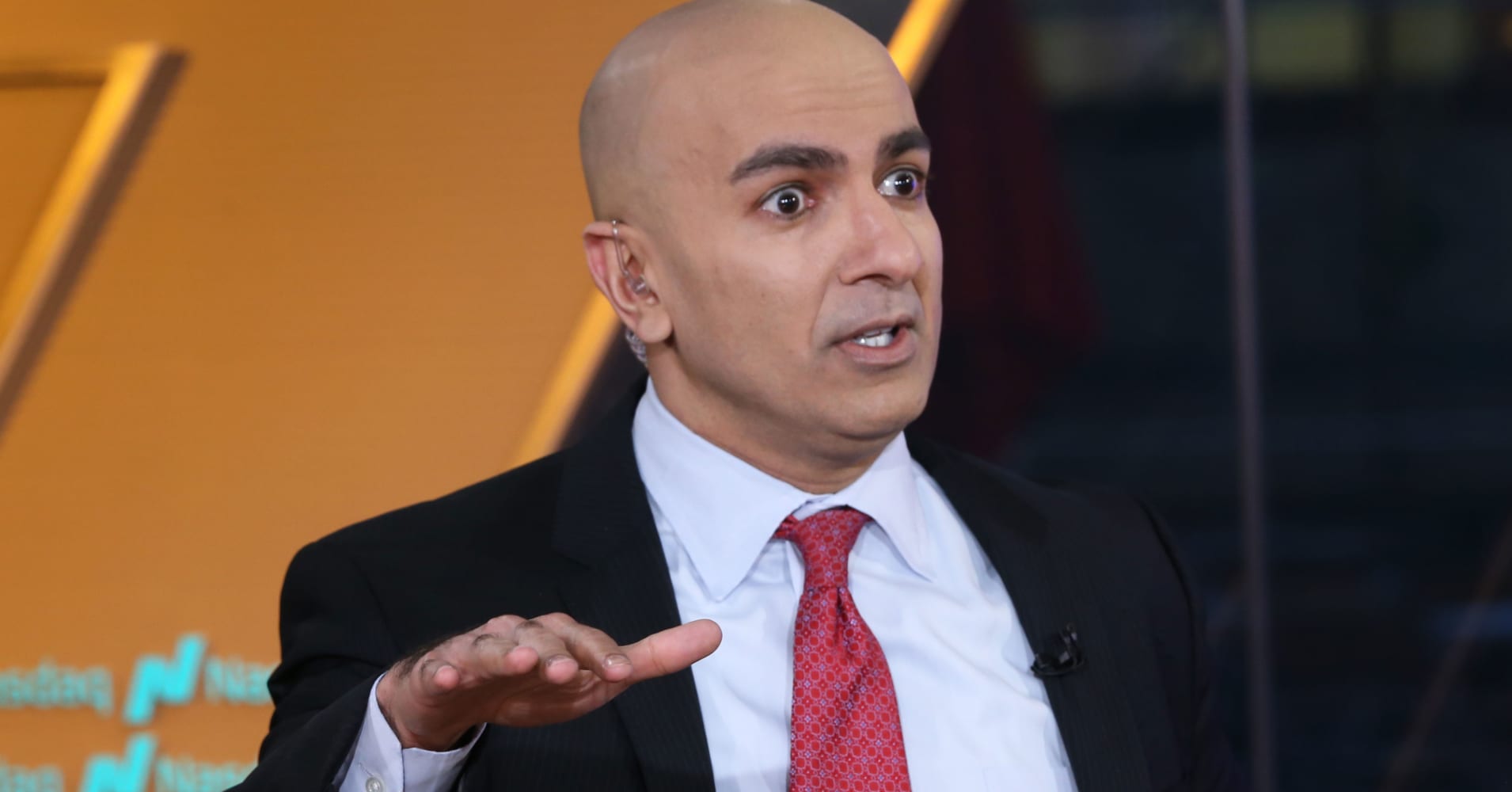
Minneapolis Federal Reserve President Neel Kashkari told CNBC on Friday that central bankers should not raise rates when job creation continues to be strong and inflation remains tame.
“For the three years since I’ve been at the Fed, we have been surprised by the labor market. We keep thinking we’re at maximum employment. And then wage growth is tepid. And the headline unemployment rate drops further. Inflation has been well under control,” he said. “If the U.S. economy is creating 200,000 a jobs a month, month-after-month, we’re not at maximum employment.”
With neither pillar of the Fed’s duel mandate from Congress — to promote maximum employment and keep inflation from getting too high — throwing off warnings signs, the Fed should pause on rate increases at this point, Kashkari said, adding that hiking too forcefully before necessary could risk causing a recession in the U.S. economy. He believes rates are “close to neutral.”
Furthering his case holding rates steady, Kashkari said “there’s still slack” in the labor market. Unless wages really go up or inflation spikes, a wait-and-see posture at the Fed makes sense, he suggested.
Over the long term, Kashkari thinks the economy won’t grow much more than 2 percent.
While that’s been seen as a base case for some time, he said that 2 percent growth at the near zero percent rates of the past is far more difficult to maintain with rates so much higher nowadays.
Kashkari appeared on “Squawk Box” as debate raged in the investment community on whether Fed Chairman Jerome Powell‘s speech this week really departed materially from the comments he made last month that led to widespread concern about the path higher next year for interest rates and an October market rout.
In Wednesday’s address to the Economic Club of New York, Powell said rates are “just below” neutral, which appeared to be a sharp turn from his Oct. 3 remarks that rates were long way from neutral, a level neither stimulative nor restrictive to the economy.
The stock market ripped higher Wednesday on the thought that Powell softened his stance and thus signaled that the Fed may not be as aggressive as feared on rates. Stocks pulled back slightly Thursday. While U.S. stock futures were lower Friday, on the last day of the month, the market stands a chance at holding on to the slight gains made in volatile trading in November.
Despite the initial optimism in the market, some prominent Wall Street economists said they did not see a major difference in what Powell said this week compared to last month.
The central bank has already increased rates three times this year, with one more expected in December. The target range for the central bank’s benchmark federal funds rate, which banks charge each other for overnight lending, stands at 2 percent to 2.25 percent. After its most recent hike, the Fed projected three rate increases for next year.
Kashkari is not a voting member on the central bank’s policymaking committee this year or next year. But as a voter in 2017, he was against all three rate hikes last year, saying at the time there was no need to move because inflation wasn’t a problem.
Kashkari, who unsuccessfully ran as a Republican for governor of California in 2014, served as the administrator of TARP, the Troubled Asset Relief Program, at the Treasury Department during the financial crisis. After leaving Washington, he joined Pimco as a managing director and head of global equities. Before his time at Treasury, he was a vice president at Goldman Sachs.
Be the first to comment